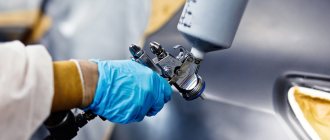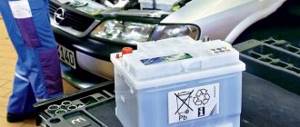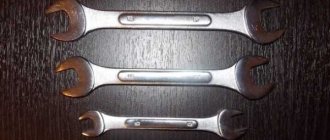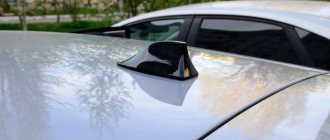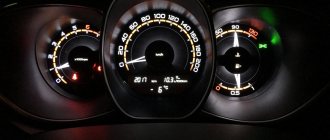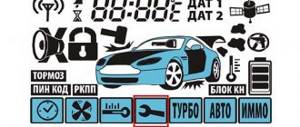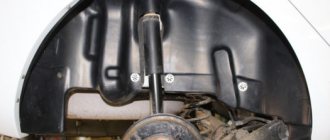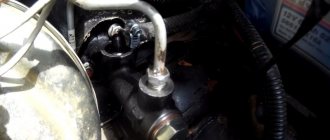8 min
…
When purchasing a car at the dealership, you will definitely be offered a number of additional options and services. Among such services, in large centers, additional anticorrosive protection is practically imposed. But the problem is that the manufacturer himself knows what climatic conditions the car is being sent to, so anti-corrosion treatment is carried out at factories quite efficiently. Of course, this does not apply to all cars. But in general, there will be no difficulties in the first 3-7 years of operation. Many brands even provide a guarantee against through body corrosion for a period of 5-7 years, which confirms the fairly high quality of the factory anticorrosion agent. But when selling a car, the salon manager can tell you how bad the factory treatment is, tell you about known cases of rapid rusting of the body of other buyers’ cars, and also unobtrusively offer service services located at the salon. Is it worth ordering additional anticorrosive for a new car?
This is a very controversial issue, with more unknowns than initial data. Therefore, it is simply impossible to answer this question unequivocally. It is worth understanding the situation taking into account specific examples and expert recommendations. You should also read reviews about your car. Many experienced drivers buy a car, drive it into a garage and inspect every square centimeter of the car. After that, they write reviews and opinions on forums, which greatly helps other buyers make the right decisions. True, it is difficult to check on the Internet whether you are reading a review from an expert or a student. Therefore, you should still trust only your own experience. But it’s worth backing it up with certain opinions of other people. This will help you go in the right direction to get the results you need. Of course, choosing a new car has more important issues, but you shouldn’t forget about anticorrosive.
When is anti-corrosion treatment necessary?
Previously, the most budget cars were delivered without anti-corrosion treatment at all. Also, the quality of protection of metal body parts of the cars did not differ from the Russian companies GAZ, VAZ and UAZ. All these cars had to be further processed, and many carried out this processing on their own in the garage. This arrangement did not prolong the life of the body very adequately, since the coating quickly wore off and deteriorated. It is worth doing anticorrosive in the following cases:
- you buy a domestic car - to this day, at factories in Russia, anti-corrosion treatment remains a higher mathematics, they cannot do it efficiently;
- you are buying a budget car that is assembled in the CIS countries - such cars do not always have decent anticorrosion protection; in most cases, at this stage, manufacturers save a lot;
- your car has been sitting for 1-2 years in an open-air showroom or even in a dealer’s warehouse, it is better in this case to update the anti-corrosion coating and make sure that it is normal;
- car after a test drive or other manipulations with a discount, in this case you should carefully look at the layer of anti-corrosion treatment on the bottom and think about additional measures;
- reviews about your make and model of car say that corrosion appears quickly; today there are fewer and fewer such cars, but they do exist, so you should choose carefully.
Chinese cars are also extremely interesting in this case. The Chinese carry out anti-corrosion treatment all the time, but they use materials of terrible quality. While the car is driving around Russia on a car transporter, its anti-rust coating will successfully come off, leaving the metal bare. So when buying a Chinese one, the first thing you should do is contact a good service and get anticorrosive work done. This procedure should be repeated once every 2-3 years to maintain normal body quality in the future.
Anticorrosive anticorrosive discord
In today's Russian market, anti-corrosion body treatment services are offered by many different car services, auto repair shops and even so-called “garage services”. There are also many different chemical products on the market that remove rust from cars. Unfortunately, the quality of services does not meet the standard everywhere.
When choosing a place where to do anti-corrosion treatment, we advise you to choose specialists, taking into account recommendations on the Internet, reviews of friends and craftsmen who have sufficient experience in anti-corrosion treatment. An important detail when choosing a location for bodywork is the materials that will be used to process your car. Remember that, first of all, high-quality anticorrosive agent depends on the type and quality of the products used.
Therefore, before carrying out processing, ask at the car service what materials will be used for processing. It is desirable that these be materials from European manufacturers, many of which have proven themselves to be excellent in harsh Russian conditions.
Where to carry out anticorrosion on a new car?
This is a rhetorical question for those owners who buy their cars at large dealerships. Today, the warranty conditions for cars are so thin that anti-corrosion protection carried out outside of the dealership will cause the car to be removed from the warranty. If you do not want such consequences, it is better to order processing from officials and make certain notes in the service book. If the warranty is not important to you, you can carry out the treatment at a service center with the following features:
- professional equipment - it should not be a garage technician with a can of mastic and a brush, such anticorrosive agent will not last even six months, given the characteristics of our unpredictable roads;
- good mixtures - high-quality modern anti-corrosion materials will help maintain the effect of protecting the body longer, so that there is no need to cook the car in the 3rd year;
- optimal prices - you don’t have to pay tens of thousands for anti-corrosion body treatment; the normal price for a small car, for example, ranges from 5,000 to 8,000 rubles for the entire car;
- guarantees - it is better to trust service centers that provide a guarantee and can provide your car with maintenance, routine maintenance and other important tasks;
- speed - this factor should be handled with caution for a new car; immediately after leaving the showroom, it is better to go for anti-corrosion treatment, as otherwise you will have to wash the underbody.
If you decide to apply anti-corrosion coatings, do so immediately after purchase. It would be ideal if this task is performed by a specialist directly at the service station at the dealership, so that the car does not drive on the roads at all. In this case, you will get the necessary results and will be able to use the car for many years without worrying about its possible destruction from rust and other troubles. In the future, the procedure should be repeated as the old anti-corrosion coating wears out.
What is anticorrosive?
Anticorrosive is the abbreviated name for the so-called anti-corrosion treatment of the vehicle body, during which a special agent is applied to the car body that will protect the metal from rust.
True, anti-corrosion agents cannot provide complete protection to the body for a long time, since the aggressive external environment on the roads quite quickly damages the protective coating, which will subsequently lead to the formation of rust elements on those elements of the car body that have been damaged by stones, branches and chemicals. reagents.
Which cars definitely do not need underbody protection?
Many cars come from the factory with excellent protection for every part. Often these are expensive luxury cars. For them, anti-corrosion treatment will be required if the car has been driven for more than 10 years and the old coatings are worn out. In the budget class, such protection is rarely found, so inexpensive cars require attention to the body much more often. Here are a few types of machines that do not require additional processing:
- almost all Japanese are from the middle and high price segment - they are perfectly processed and perform well in the most difficult operating conditions in Russia;
- Germans, with the exception of those assembled in Russia, most models of this production have excellent stages of body protection that allow you to drive for a long time without corrosion;
- cars of the Uzbek brand Ravon - these cars can be called vehicles with the best anticorrosive properties and quite tolerable metal, despite the fairly low prices in the showroom;
- cars from America - all Americans are reliably protected, they are not afraid of any operating conditions, every detail is excellently processed with the most expensive materials;
- expensive SUVs and large crossovers of all brands - manufacturers want to sell more cars, so the quality of small parts, such as anti-corrosion protection, has long been the limit of competition.
In other cars, it is better to think about providing additional protection. Often such measures will help save the car from the most unpleasant consequences of operation. Therefore, it is better to take care of the body in advance so as not to order expensive welding work in the future and not to observe the terribly rapid spread of rust throughout the body of your car. These are important steps that many new car buyers forget.
Do all dealers make high-quality anticorrosive products?
Official stations from manufacturers and major brands often do their job efficiently. But the prices for their services are unrealistically high. It is also interesting that dealerships do not always complete the entire list of assigned tasks, without forgetting to include all the items in the invoice. So you need to be sure to check all the work done and don’t forget to put the car on a lift before picking it up. Here are a few signs of a poorly executed anticorrosion agent:
- many places on the bottom are poorly frozen, it’s not worth picking up such a car from a service center, you need to let it stand for a while until the main layers of protection on the visible parts of the bottom dry;
- you are offered to pick up the car within 1-2 hours after being handed over to the service, often in this case no work was carried out at all, the technicians walked around your car and took the money;
- the anticorrosive agent looks old, which also means the absence of any work; the craftsmen considered that the factory body protection would be enough for your car, but they took money for the work;
- there are no odors in the cabin - quite sharp and unpleasant, similar to the smell of fresh asphalt or scorched plastic, since anti-corrosion coatings have precisely such odors;
- in the salon, upon purchase, they begin to impose service services, including anti-corrosion treatment, often in this case anti-corrosion treatment is not carried out at all, and they gladly take money from the client.
You should check all the activities that you pay for at the car service center. It is necessary to inspect the treated surfaces, assess the freshness and quality of the coating. If glimpses of bare metal are visible through the anticorrosive, or there are untreated surfaces, you should not accept such work. It is necessary to point out the shortcomings to the contractor and ask him to complete the work properly. Otherwise, untreated parts of the car will suffer greatly in the future.
We also suggest watching a video about anti-corrosion of a new car:
How long does anticorrosive last?
As a rule, high-quality anti-corrosion material that is applied to a car lasts about three years. But this is provided that the work was carried out efficiently. The quality of anticorrosive application depends on many factors:
— Quality of surface preparation
— From the equipment used
— Specialist experience
— Compliance with technology when processing the body
Who needs to carry out anti-corrosion treatment of the body first?
Of course, first of all, owners of cars older than 2-3 years should think about anticorrosion. Especially if the vehicle was purchased for several years and is intended to be used for a long time. Remember that a car older than 2-3 years already has a risk of corrosion, since many body elements by this time are no longer protected from an aggressive environment, due to various chips, dents, scratches, etc. (especially in those places where the metal is not under the paintwork).
Let's sum it up
It is difficult to give specific recommendations when buying a new car. If you are buying a Lexus or Porsche, you will hardly even think about ordering additional anti-corrosion coating. However, for cheaper cars, anti-corrosion has already become a mandatory procedure. Before ordering services, just look at the reviews of the car to understand the timing of the first signs of corrosion. On Lada, the first dots appear on the bottom already in the first year of operation. And Hyundai, for example, drives without any problems for 3-4 years. For Germans this period is up to 7 years, as well as for most Japanese manufacturers.
Do not blindly trust the specialists and salespeople in the salon. It is better to soberly assess the situation and understand whether you need additional anticorrosive. In this case, you will be able to obtain the necessary information on processing the car without any problems. Ukrainian cars ZAZ Chance, ZAZ Lanos and other representatives of the Zaporozhye plant have always had the saddest anticorrosion from the factory. Even if you did an anti-corrosive treatment when purchasing it, you should seriously look at the condition of the “galvanized” body of this car. By the way, galvanizing, even with good quality, protects the body for up to 7-9 years. Then it is still necessary to carry out anti-corrosion treatment. When buying a new car, would you order an additional anticorrosive agent?
